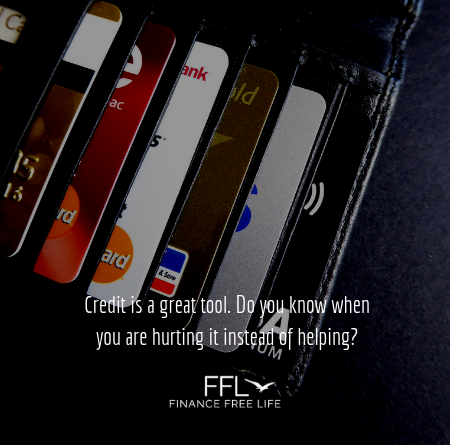5 Common Mistakes Which Actually Hurt Your Credit
Many of us use and work with credit daily. We are constantly trying to look for ways to build credit, or to make sure our credit score is the best it possibly can be. But did you know there several common things we do, that we think are helping, but actually hurt.
Take these common tips, and make sure you are doing everything you can to avoid credit issues.
1. Spending to your credit limit.
A common credit myth says that you should spend up to your credit limit to build and improve your credit. However, this is false. Spending up to your credit limit can actually hurt your credit. Spending up to your limit is seen as unstable spending. This is calculated using your debt-to-income ratio, which is your debt utilization ratio. Spending above 50% of your limit will cause this number to increase, and your credit score to go down.
Aim for not more than 30% of your credit limit spent each month. Ideally, don’t use your credit card for things you would not normally buy. Pay it off every month, without carrying a balance.
2. Closing credit card accounts
As much as this may seem like a good thing, closing credit card accounts can actually be a bad thing, especially if they are established accounts. Did you know that 15% of your credit score is determined by established accounts? Closing accounts decreases your overall debt limit, which can decrease your ratio if you are still in debt. Instead, keep them open, but stop spending. Create a debt plan to pay them off. If you have recently opened credit cards that you do not need, you should be okay to close these as they are not established
3. Applying for new credit often.
Yes, you can certainly get some better discounts when you apply for the credit cards through the department stores which provide them. However, when you begin to open a bunch of these, your credit score will begin to fall. The more credit lines you have open, the increased credit limit exposure you have on your credit score. If you have 5 credit cards with $5,000, you will have a $25,000 credit exposure. Even if you do not use the full value, it will still affect your debt to income.
4. Ignoring your credit report
Your credit report is not something to be ignored. Although there are many things you yourself can do to mess up your credit, there are also things others can do as well. Identity theft is a huge issue in today’s society. For those of us who ignore our credit reports, it can be a perfect victim for identity thieves. The longer you do not check it out, the longer they have to severely mess with your financial reputation. We all have the right to check our credit scores for free once a year. Be sure to take this opportunity to check yours out!
5. Incurring debt early in life
Having too much debt is damaging to your credit score. This can be made especially more difficult when you are too young to really know what you are doing. So often, young adult who are barely 18 years old are given the ability to get credit cards or other small forms of lending. This is on top of student loans. We have worked with so many students who have more than $50,000 in debt, and they are in their early twenties. This debt will stay with you for the rest of your life in most cases. Most are still paying off their own student debt by the time their kids are ready to go off to college. It is a terrible cycle to get into. Make sure you know what you are doing before you get involved. It will stick on your credit report for as long as their is a value remaining.
There are so many ways to be smart with your money and your credit score. In some instances, common sense plays a huge role. In others, it is best to just say “No,” before you commit to more debt.

